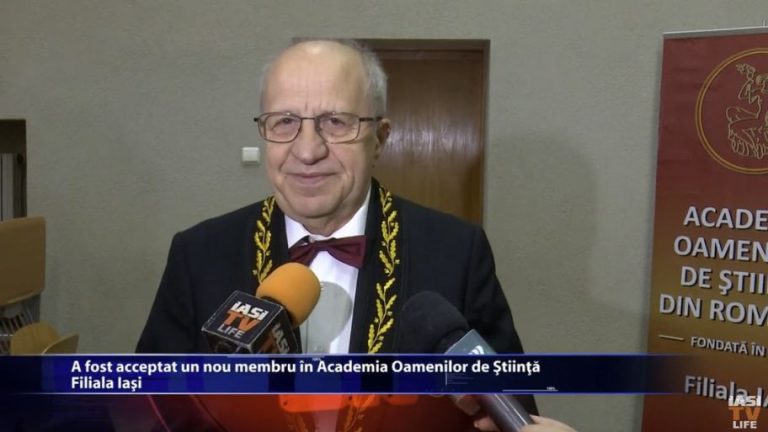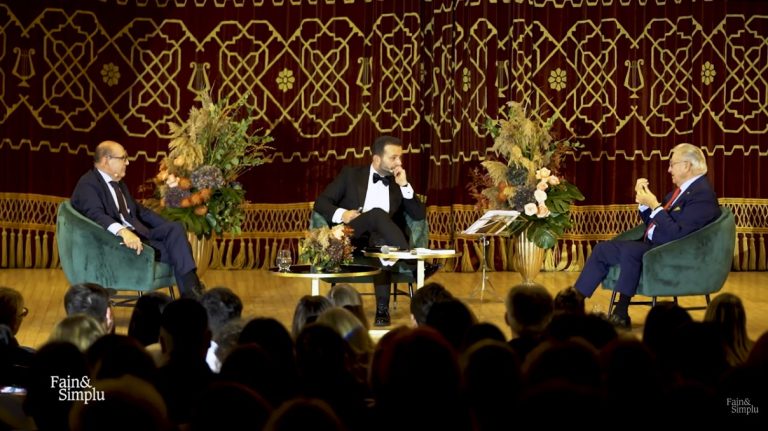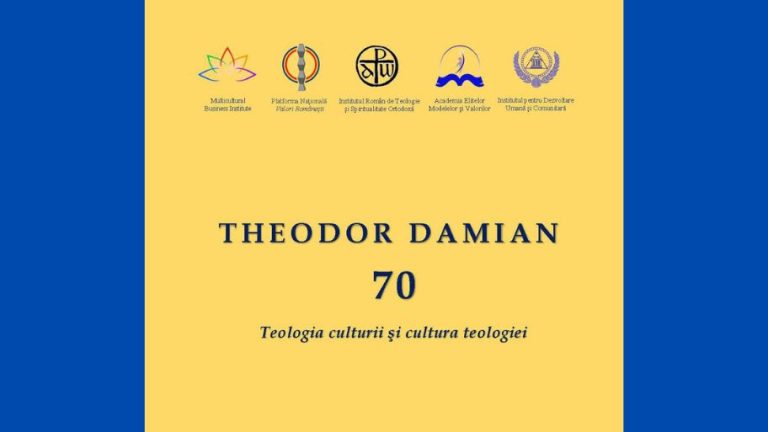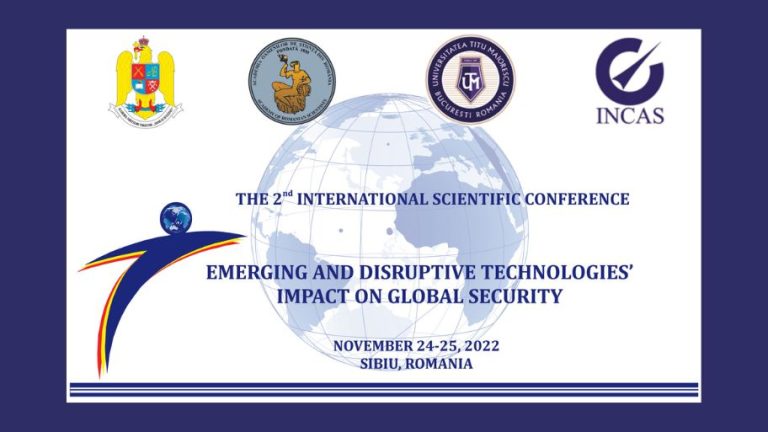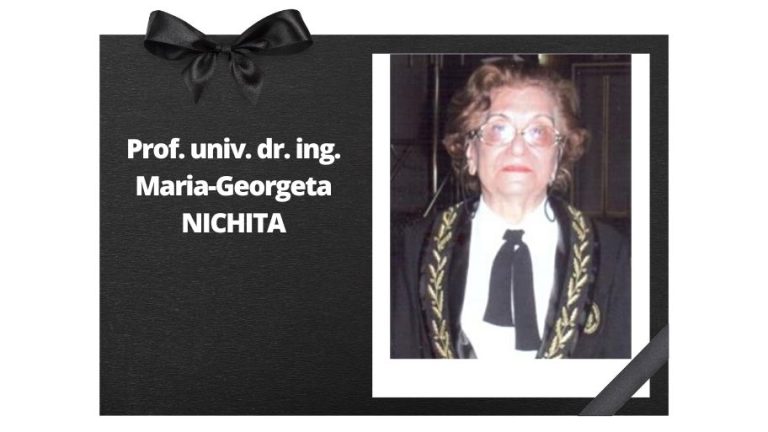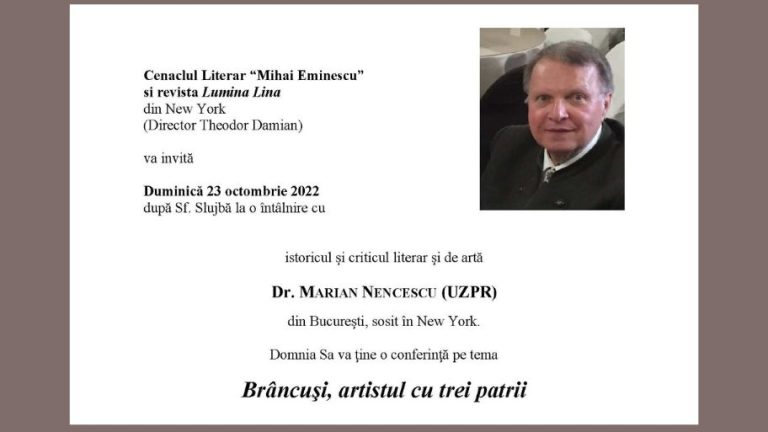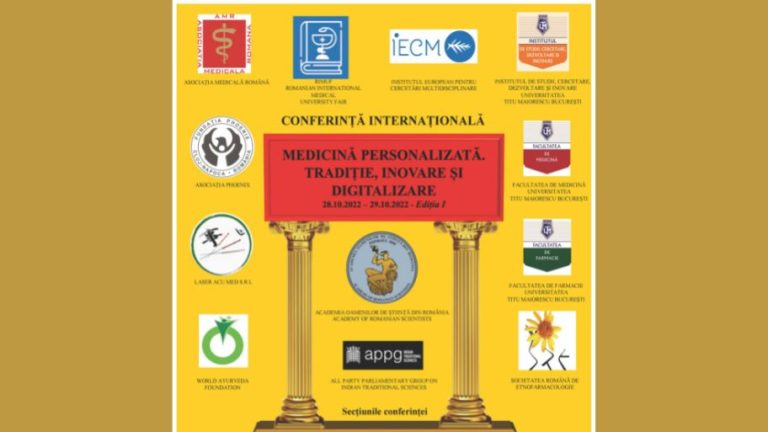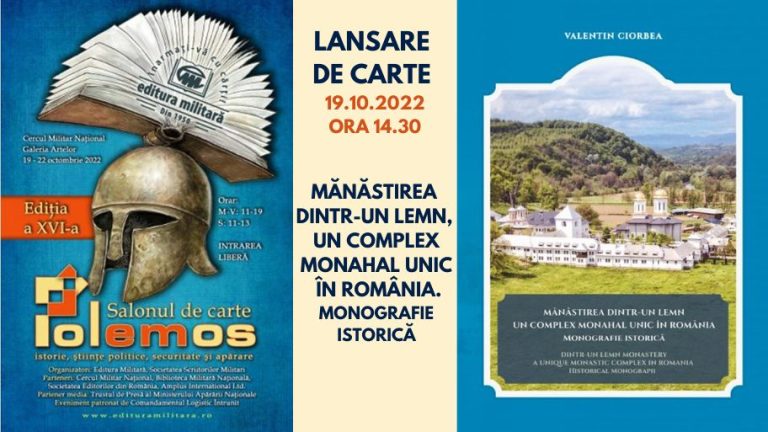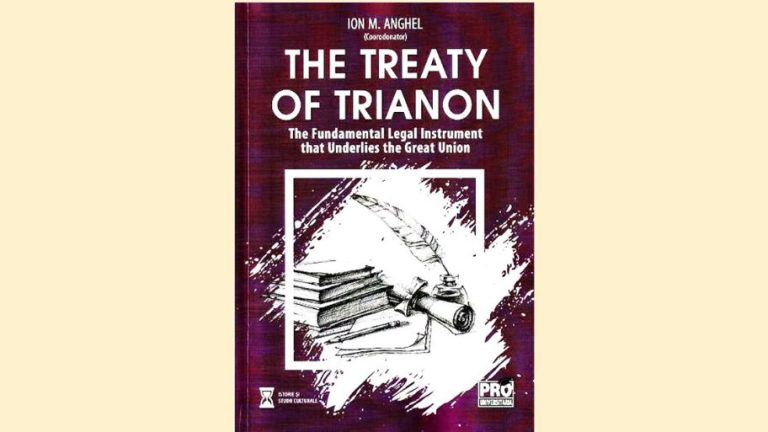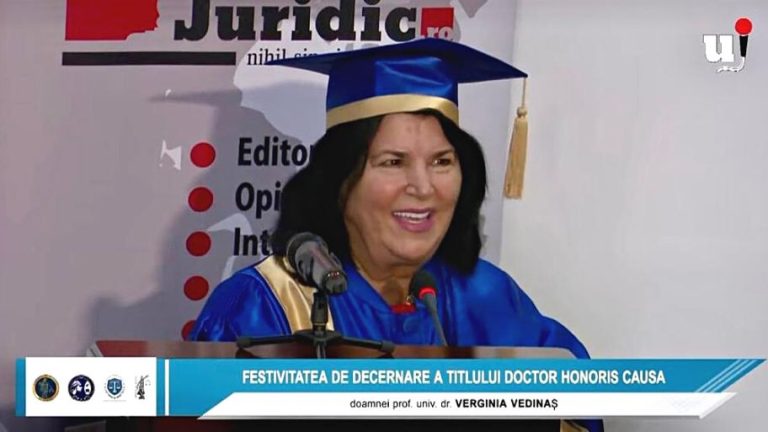The Academy of Scientists Iasi Branch has reopened the series of presentations after two years of interruption due to the pandemic. The speaker who had the honour to start this series was Professor Ionel Marcel Popa, who gave the lecture “Thermodynamics and the knowledge of the world”.
Doctors Dulcan and Ciurea: “Can I be God?”
Two lords of Romanian medicine – Professor Dumitru Constantin-Dulcan and Professor Alexandru Vlad Ciurea, honorary member of the Romanian Academy and full member of the Academy of Romanian Scientists – are the first guests of the event of the year: Fain & Simplu at the Romanian Athenaeum.
SHOW NOTES:
00:00 – Intro
04:05 – On the stage of the Romanian Athenaeum
05:44 – It’s time to find ourselves as people, as a nation
08:55 – First guests: 2 lords of Romanian medicine
12:57 – Is man originally evil or good?
19:46 – What made us the most successful species on earth
25:42 – Brain VS computer
30:12 – The unsuspected power of our brain
33:11 – What faith means and how it changes our lives
39:34 – The drama of the man who had 23,000 brain surgeries
42:42 – About the power of words
49:40 – Brain, mind, consciousness, intelligence
1:02:19 – What evidence do we have for the soul?
1:12:30 – Nouroteology, the new soul-searching discipline
1:14:49 – The devastating impact of depression
1:17:39 – PREMIERE: Professor Vlad Ciurea’s depressive episode
1:23:45 – The antidote for burn out
1:29:46 – Today’s technology: useful or harmful? Does the brain keep up?
1:36:04 – Conclusion: brain or heart?
1:40:36 – UNRELEASED: Q&A with Professors Dulcan and Ciurea
Launch of the volume “Theodor Damian – 70”
ACADEMY OF SCHOLARS OF ROMANIA, USA BRANCH – ROMANIAN INSTITUTE OF ORTHODOX THEOLOGY AND SPIRITUALITY, NEW YORK –
The Literary Circle “Mihai Eminescu” and the magazine Lumina Lina in New York (Director Theodor Damian) organized on Sunday, October 30, 2022, the launch event of the volume Theodor Damian – 70, coordinated by Prof. univ. Dr. Ioan Gâf-Deac.
Speakers at the event: prof. univ. Doru Tsaganea and Valentina Ciaprazi
Location of the event. Ap. Peter and Paul, at St. George’s Episcopal Church 14-02 27th Ave. (corner of 14th Street), Astoria; NY 11102, Subway Q or N at Astoria Boulevard stop, or Bus Q 18, stop at 14th Street
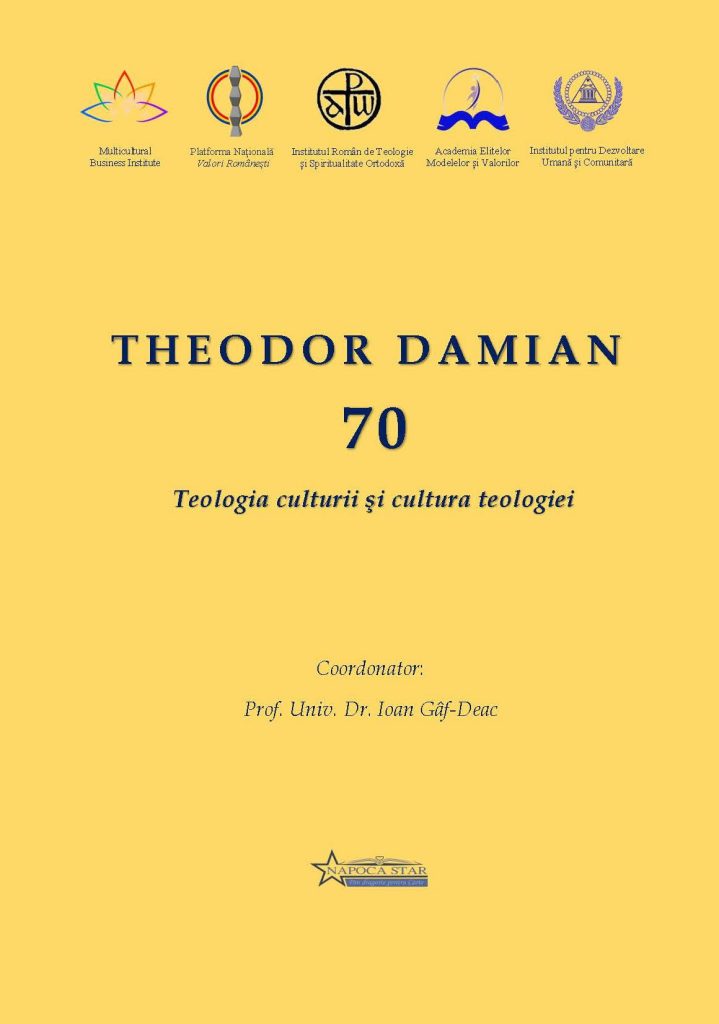
International Conference “Emerging and Disruptive Technologies′ Impact on Global Security”
The 2nd Edition of International Scientific Conference “Emerging and Disruptive Technologies′ Impact on Global Security” organized by “Nicolae Balcescu” Land Forces Academy of Sibiu, Academy of Romanian Scientists (AOSR) – Military Section, “Titu Maiorescu” University and National Institute of Aerospace Research brings to the participants’ attention new ideas and approaches related to the topic of emerging and disruptive technologies and their impact on global security offering the opportunity to share experience and scientific results in the academic and research environment, nationally and internationally.
The conference will be held in a hybrid format (onsite and online) in LFA facilities, in Sibiu, on November 24 – 25.
Please format your paper according to the paper template and submit it by email at conference.edt@armyacademy.ro
DEADLINES:
– Paper submission: November 11, 2022
– Notification of paper acceptance: November 18, 2022
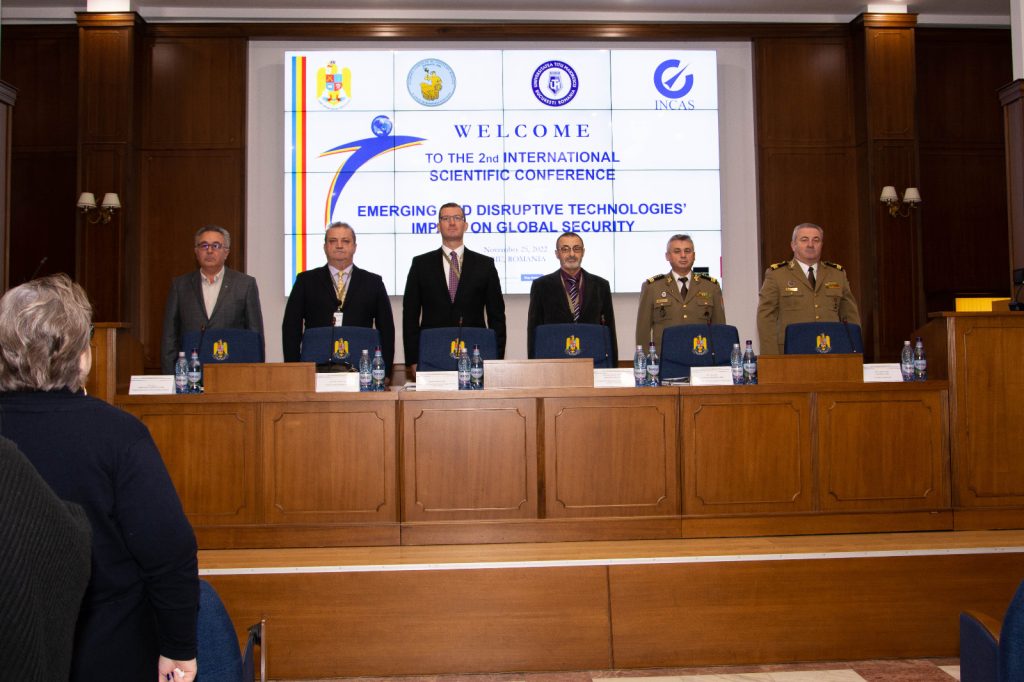
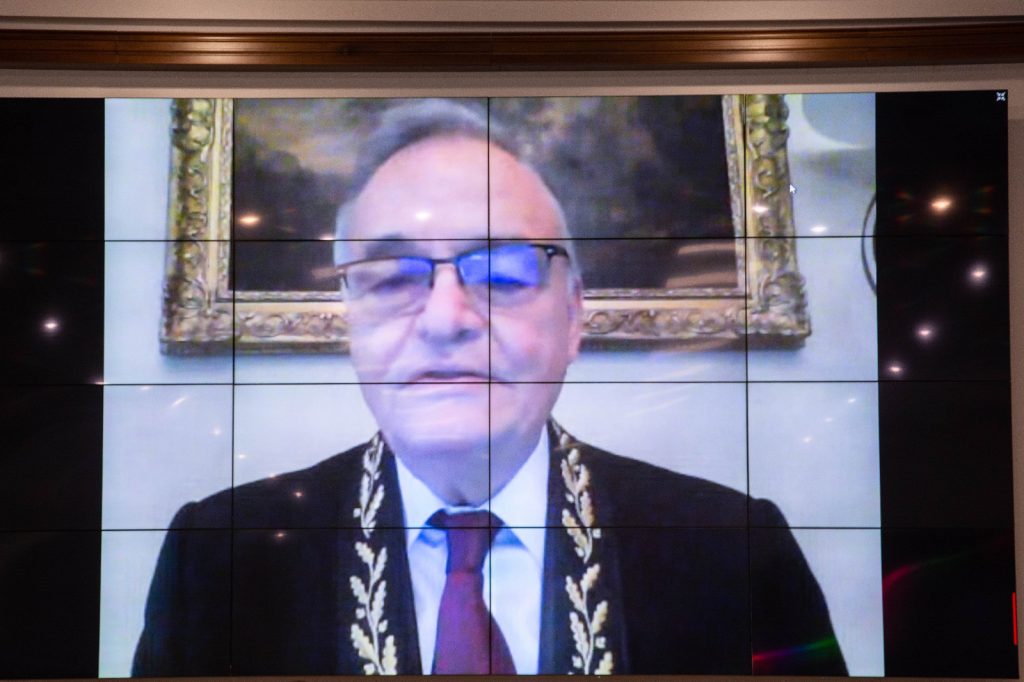


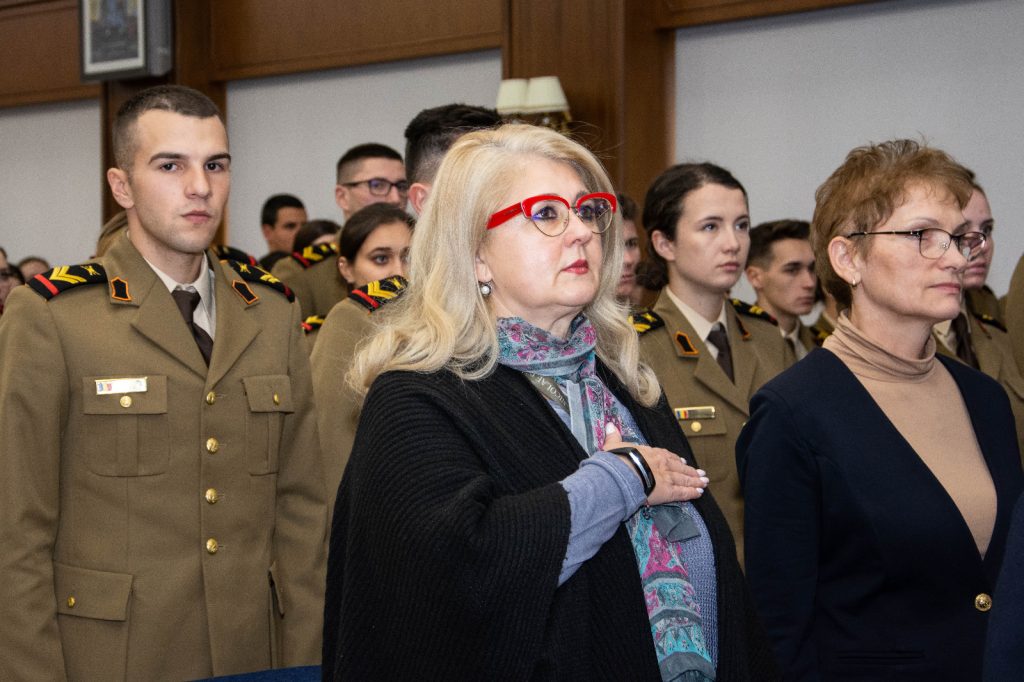
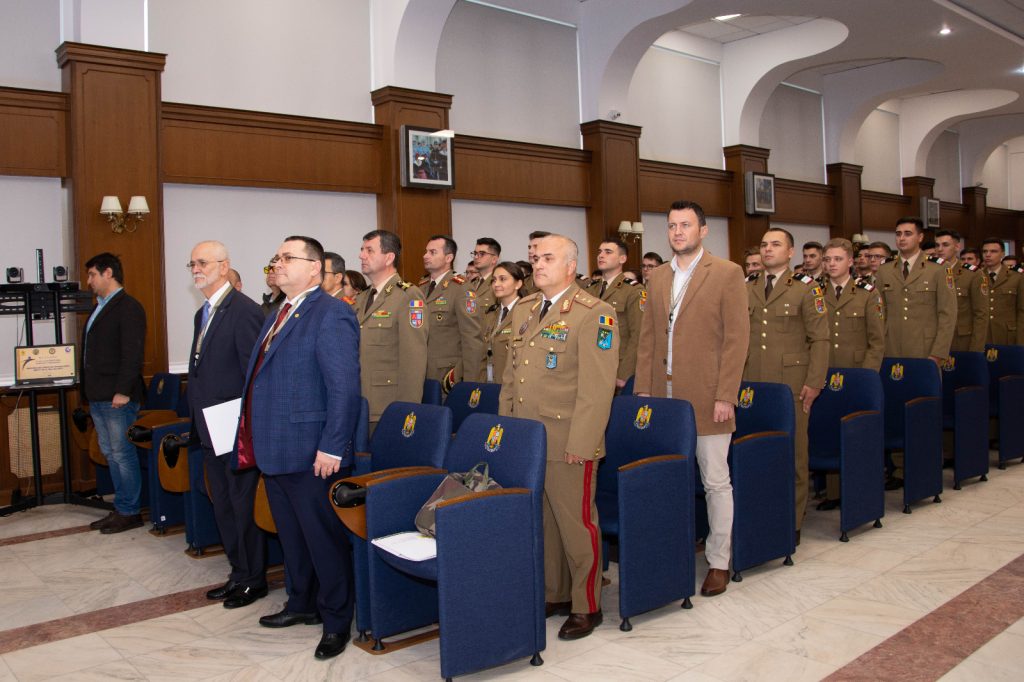
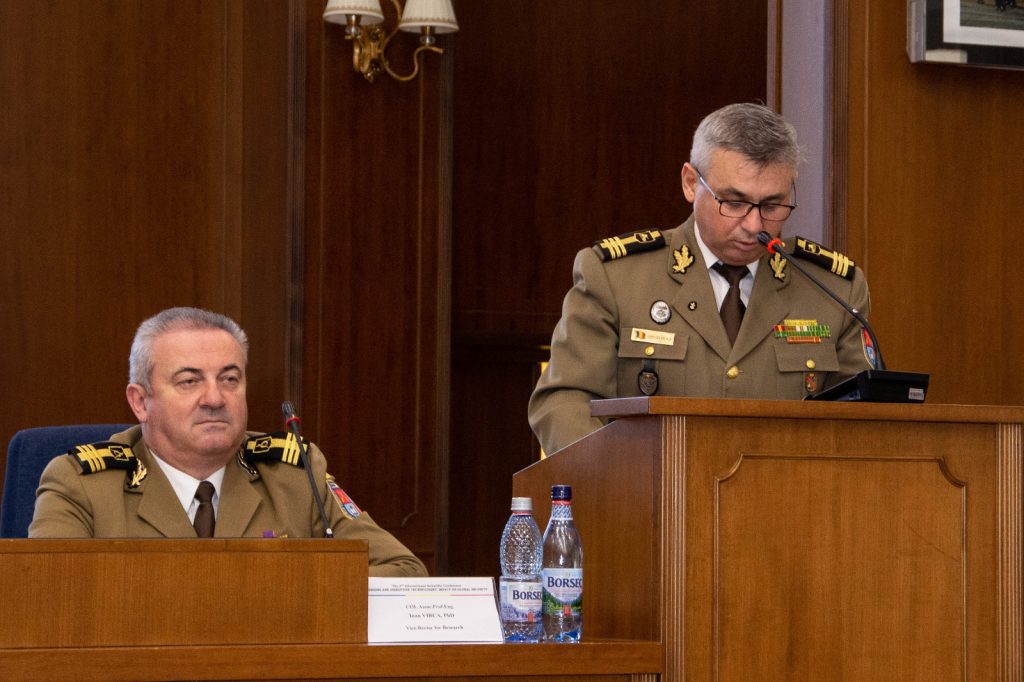
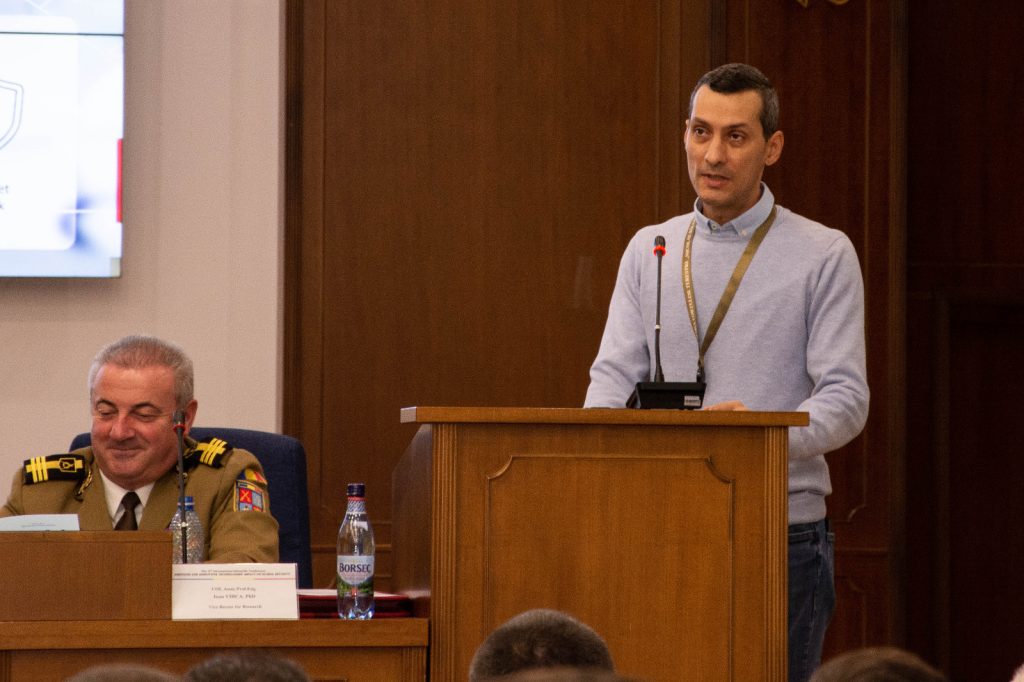
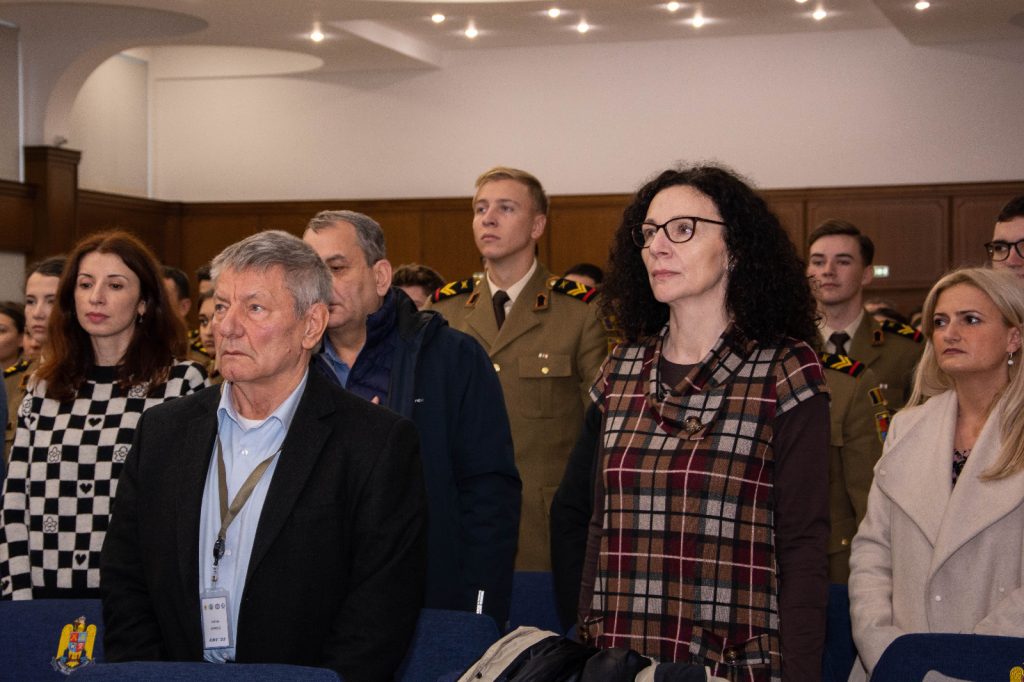
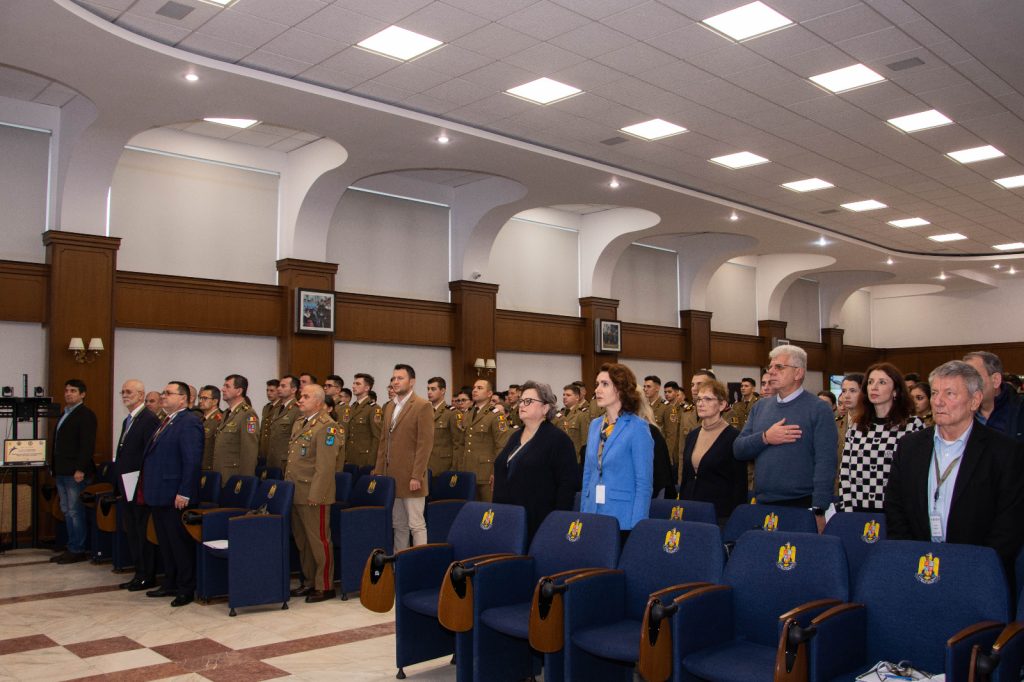
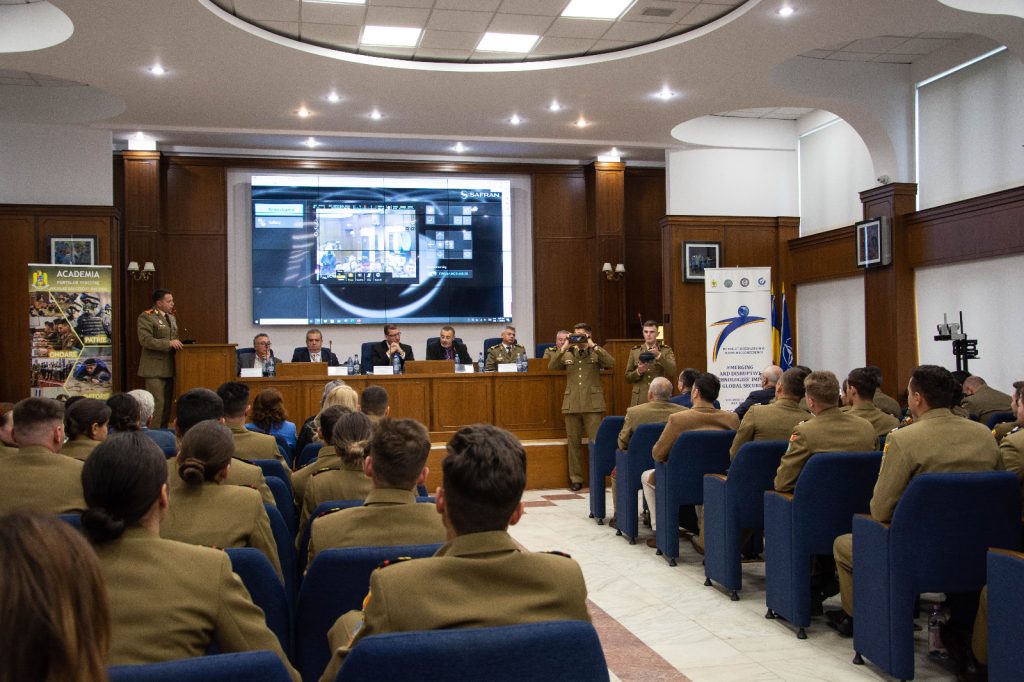
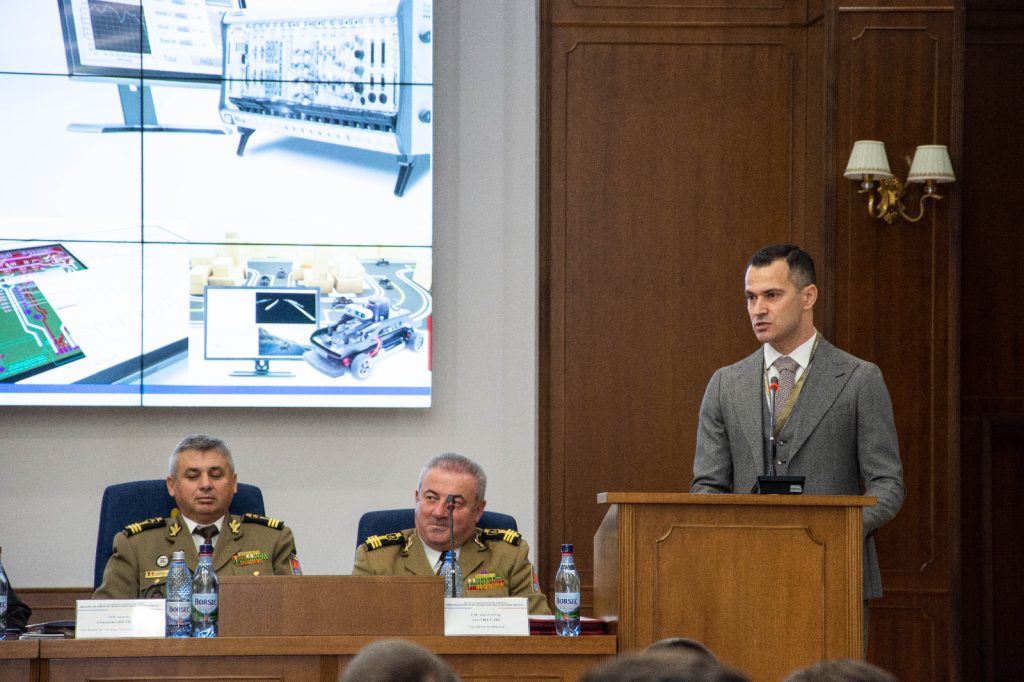
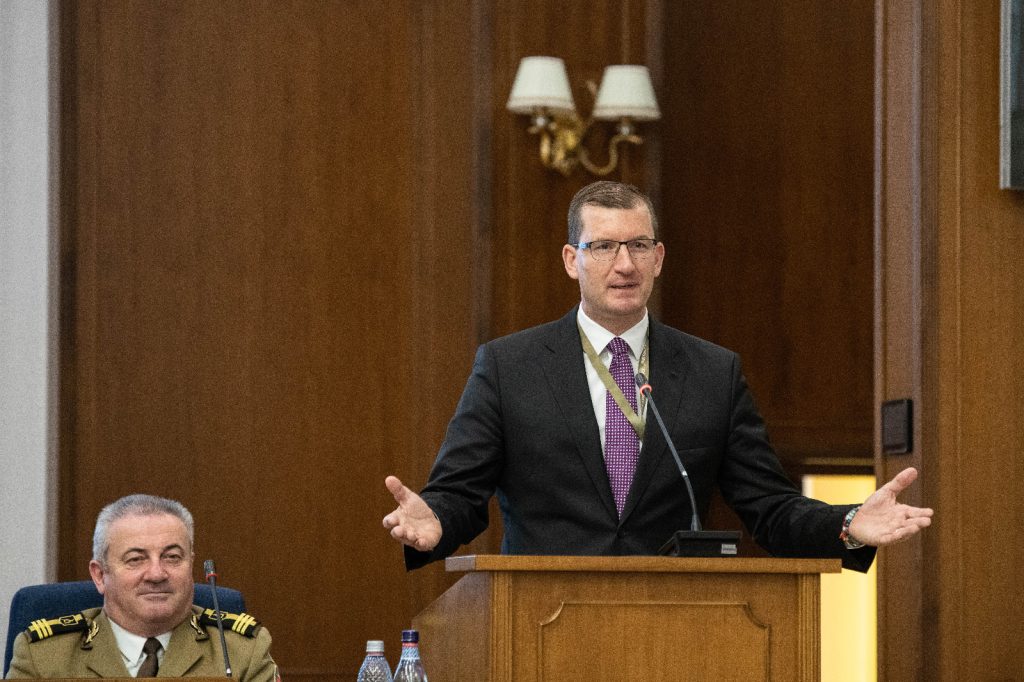
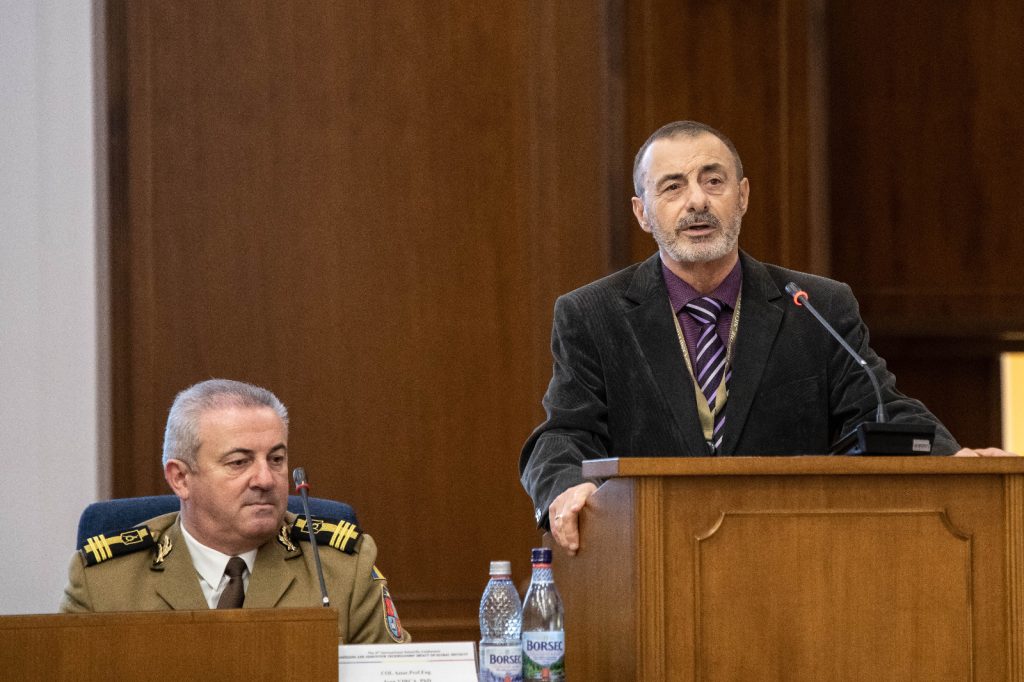
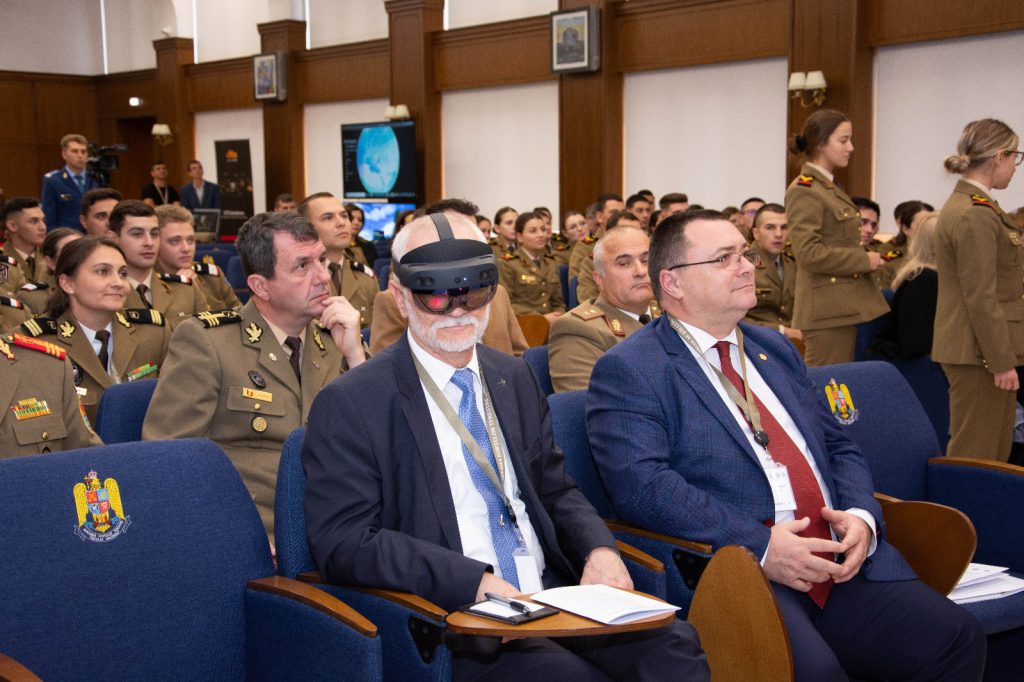
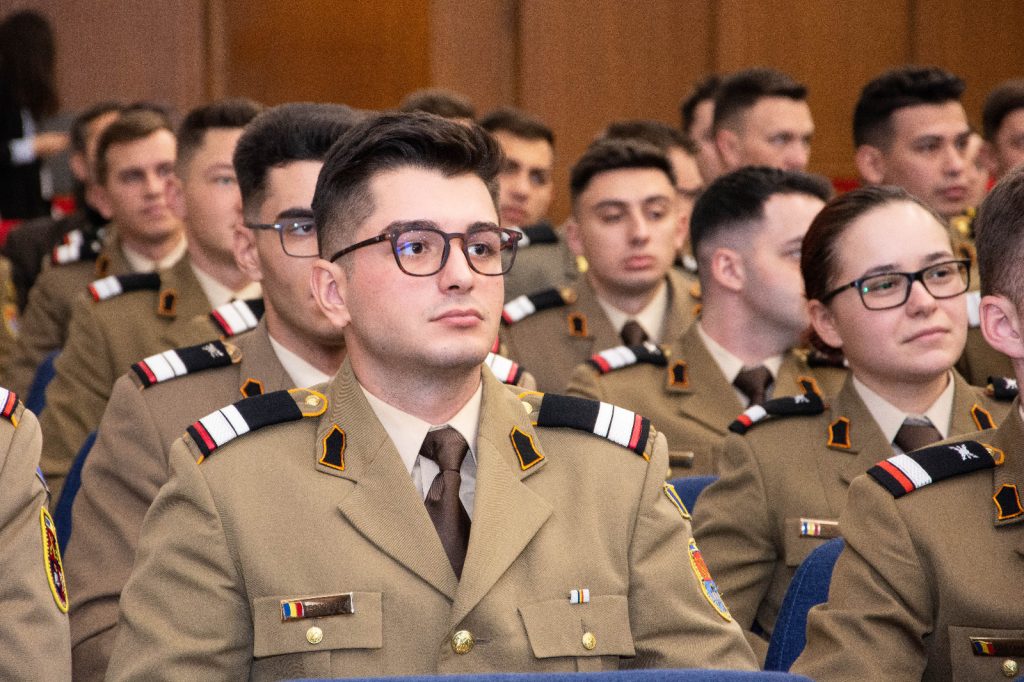
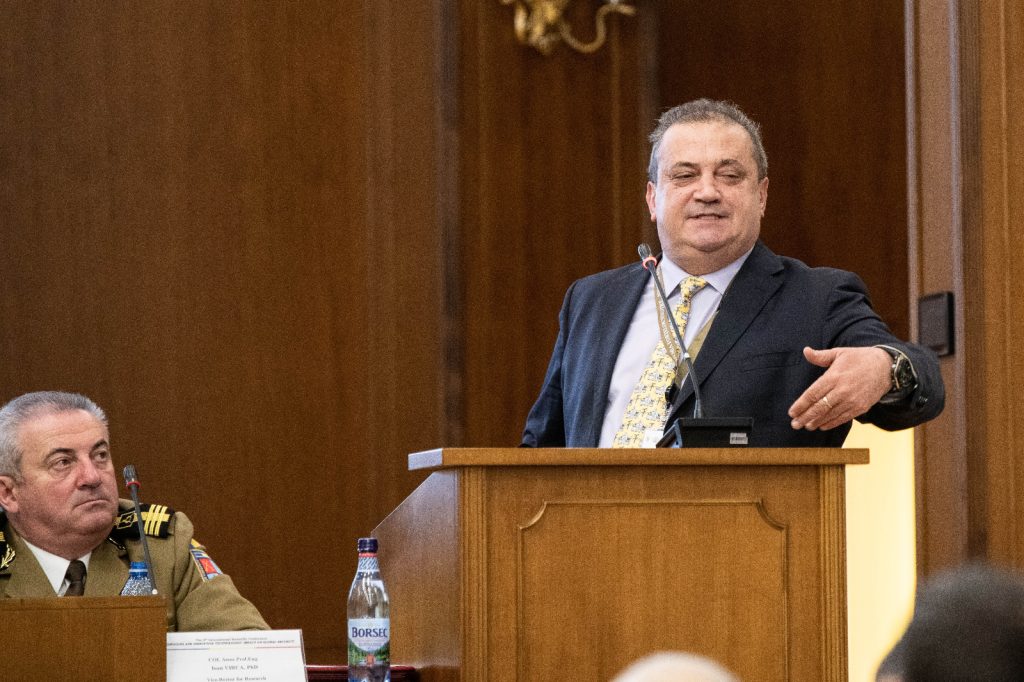
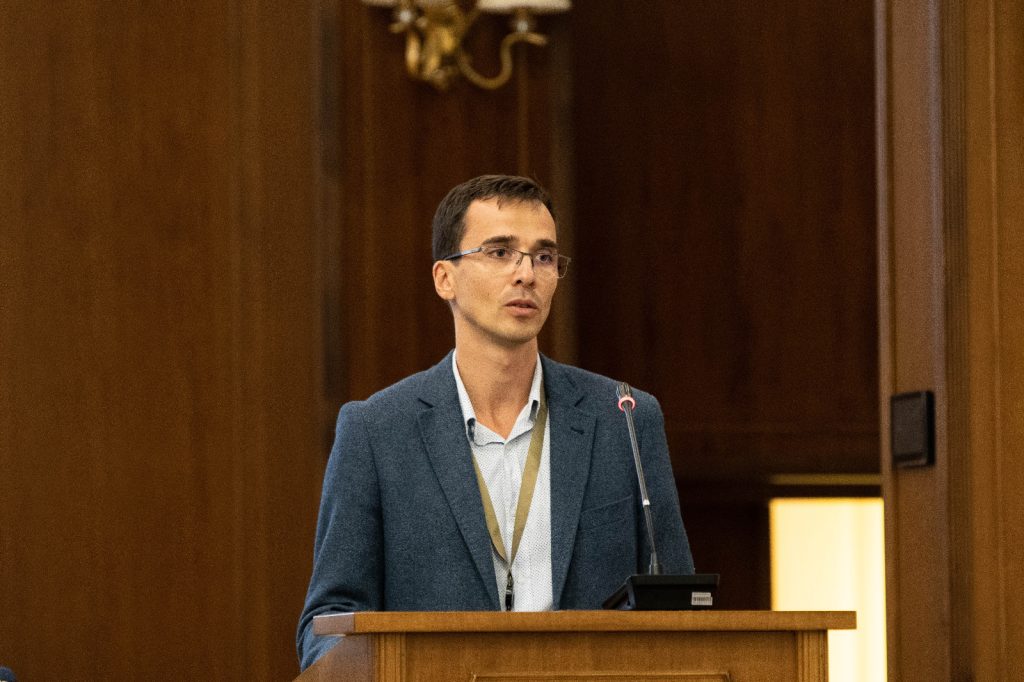
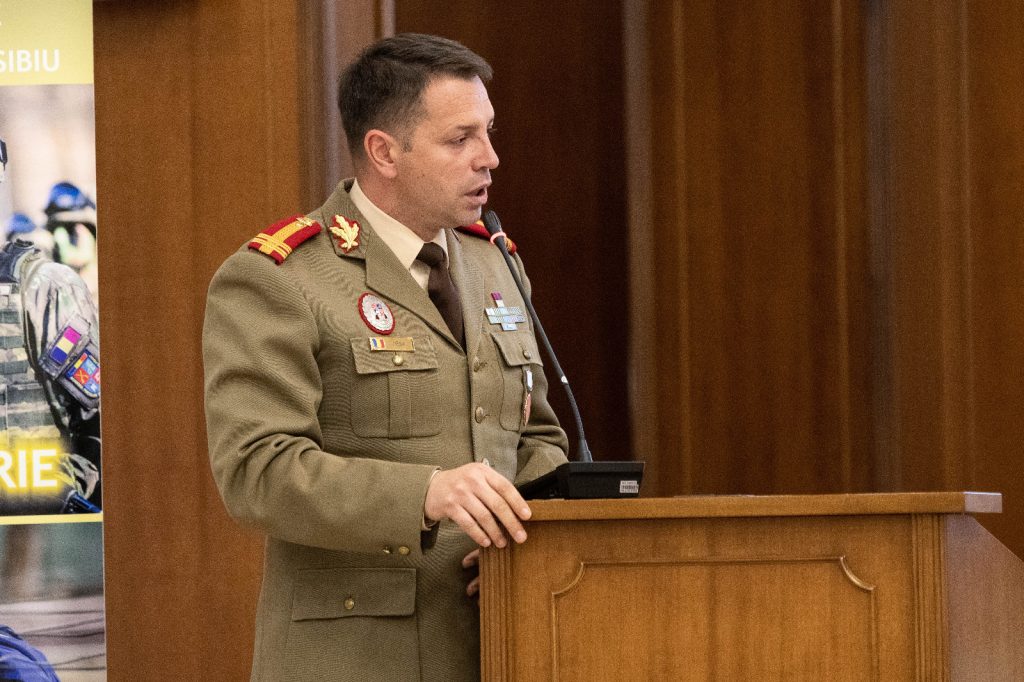
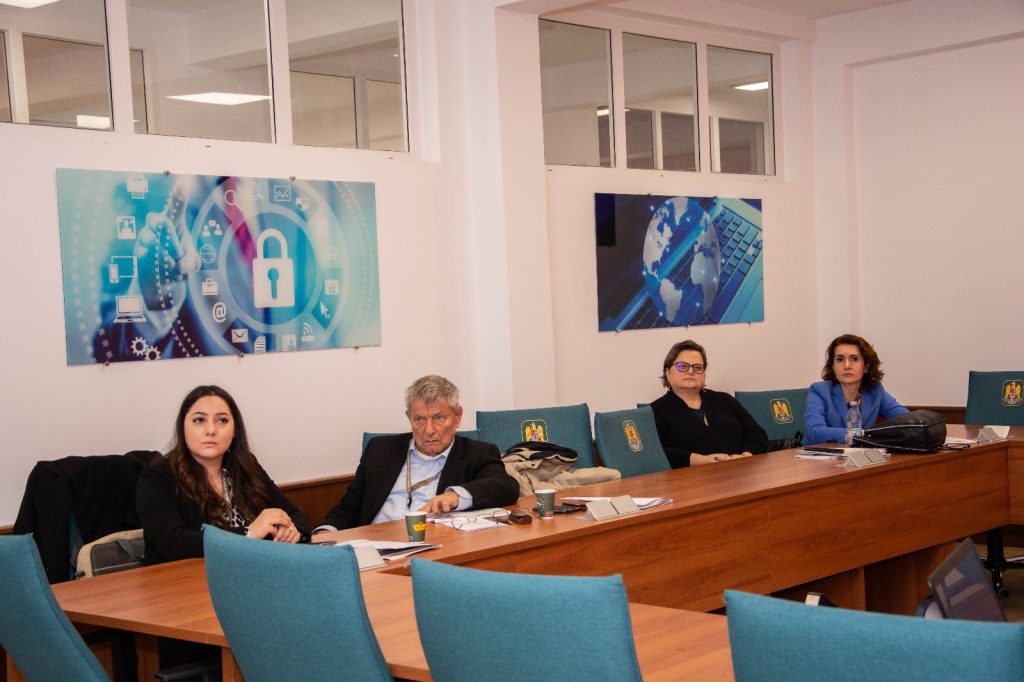
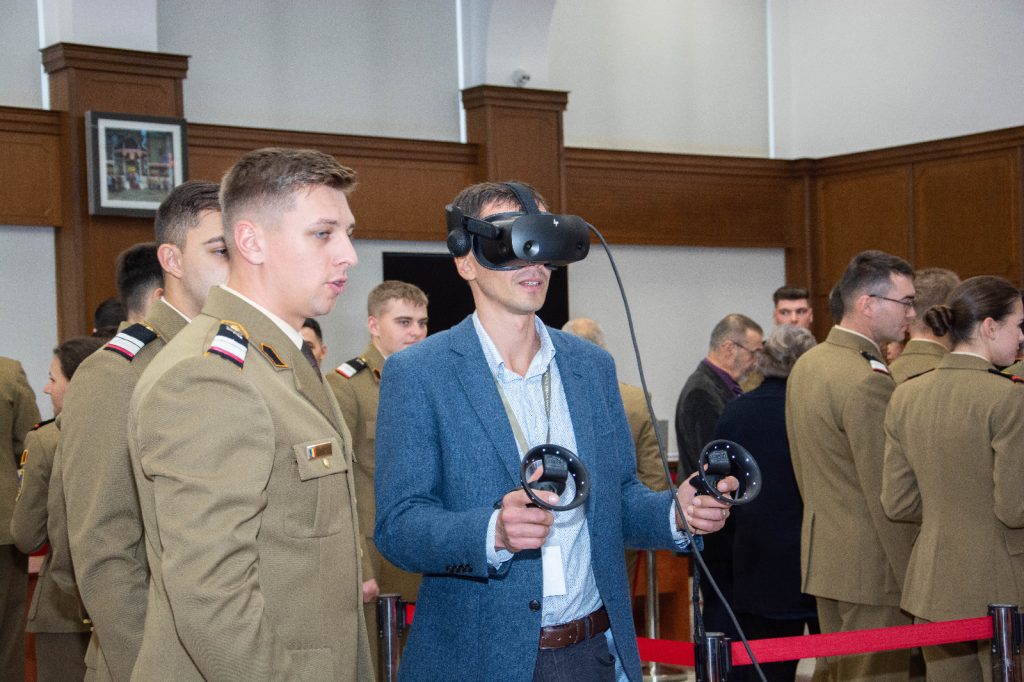
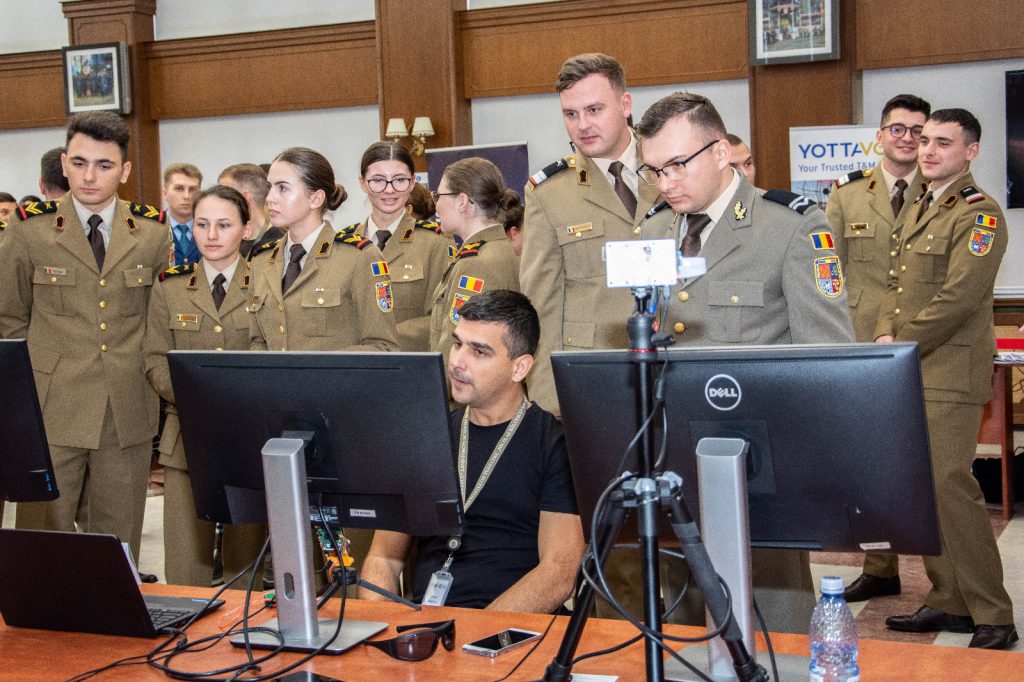
A tribute to Mrs. Prof. dr. eng. Maria-Georgeta NICHITA
Full Member of the Academy of Romanian Scientists
Vice President of AOSR Timisoara Branch (1989-2001 and 2006-2008)
Scientific Secretary AOSR Timisoara Branch (2001-2006)
Born on 13 January 1932 in Pucioasa, Dâmbovița County, she attended the Faculty of Agriculture at the Agronomic Institute in Timișoara, graduating in 1956. In 1968 he obtained a PhD in Agronomy, specializing in the feeding of domestic animals, with his thesis Contributions to the study of carotene supply in the feeding of dairy cows, at the Agronomic Institute of Bucharest. In 1975 he graduated from the Faculty of Letters – English.
His professional activity included the following milestones: 14 April 1956 – 1 January 1960 – internship in production; 1960-2005, teaching staff at the Agronomic Institute of Timisoara (IAT), where he held the following positions: head of laboratory 1960-1962; assistant 1962-1968; head of work 1968-1972; lecturer 1972-1980; professor 1980-1990; pro-rector IAT 1980-1986; rector IAT 1989-1990; consultant professor and PhD supervisor 1990-2005; vice-president AOSR – Timișoara branch (1989-2001 and 2006-2008); scientific secretary (2001-2006).
The research activity was focused on the following topics: nutritional physiology and optimization of the structure of the feed base for animal nutrition: valorization of non-protein nitrogenous substances, agricultural by-products and those from the food industry in animal feed; optimization of animal nutrition, study of the frequency and intensity of chemical and microbiological pollutants in feed and their impact on the quality of animal products and the health of animal and human consumers: Comparative experimentation of technologies to prevent and mitigate feed pollution, influence of mineral supplementation in animal feed correlated with quantitative and qualitative production of specific yields; development of new feed products for ruminant nutrition (TUM-30; Carbamin; Ureomix; partial natural milk replacers with soy hydrolysate for calf feed), etc. Between 1978 and 1990, he coordinated the scientific activity of several teachers and researchers from the Agronomic Institute of Timisoara, within the framework of 5 research contracts of national interest.
After his retirement, he continued his own research and coordinated the research of doctoral students, which resulted in the award of the Doctor of Veterinary Medicine degree.
He obtained several patents: No 66000/1976, Feed concentrate for ruminants; 82734/1983 Methods for obtaining a milk replacer with vegetable hydrolysate; 90916/1986 prestarter feed used in intensive fish farming; composition and process for its production, and he had feed innovations: Complex feed mixture with urea for bulls; Carbamin mineral supplement for cereal paste, both approved and generalized in production.
He has published 115 scientific papers (of which 103 first-author) communicated in scientific sessions, symposia, national and international congresses and published in specialized journals, in the country and abroad; 5 monographs totalling 512 pages on specialized topics and 41 specialized articles, published in local and central press.
Among the books published, we mention: Nutrition, a fundamental factor in the profitability of livestock production, Ed. Facla, 1984; Superior valorisation of agricultural and industrial by-products in animal feed, Ed. Ceres, 1976; Quantity and Quality in Animal Nutrition, Ed. Ceres, 1984; Basics of nutrition and veterinary control of feed, Ed. Didactics and Pedagogics, 1978 and ed. revised 1984.
His research and professional activity has been recognized by several awards: the Traian Săvulescu Prize of the Romanian Academy, awarded in 1987; first prize at the Salon of Inventions and Innovations, Timisoara, 1988 Methane biofermentation, energy and eco-cybernetic biotechnology for the treatment and recycling of manure from livestock complexes. Distinguished University Professor – M.E.I., 1987; three First Prizes at Invention and Innovation Fairs; three Diplomas of Honor – First Place for Scientific and Professional Activity (1986-88); World Who’s Hall of Fame (1998), The First Five Hundred at the New Millennium (1998), Gold Star Award International Woman of the Millennium (1999) – International Biographical Centre, Cambridge; Platinium Record for Exceptional – American Biographical Institute, North Carolina, 2000.
May he rest in peace!
Brancusi, the artist with three homelands
Union of Professional Journalists of Romania, Cultural Press Branch, Academy of Romanian Scientists, USA Branch, Romanian Orthodox Metropolitanate of the Americas, Romanian Institute of Orthodox Theology and Spirituality, New York
“Mihai Eminescu” Literary Circle and Lumina Lină magazine from New York (Director Theodor Damian)
invites you on Sunday, 23 October 2022, after St. Service, at a meeting with historian and literary and art critic Dr. MARIAN NENCESCU (UZPR) from Bucharest, arrived in New York. He will give a lecture on
Brâncuși, the artist with three homes.
The event will take place at St. Ap. Peter and Paul.
St. George’s Episcopal Church
14-02 27th Ave. (corner of 14th Street), Astoria; NY 11102
Subway Q or N at Astoria Boulevard station, or Bus Q 18, stop at 14th Street
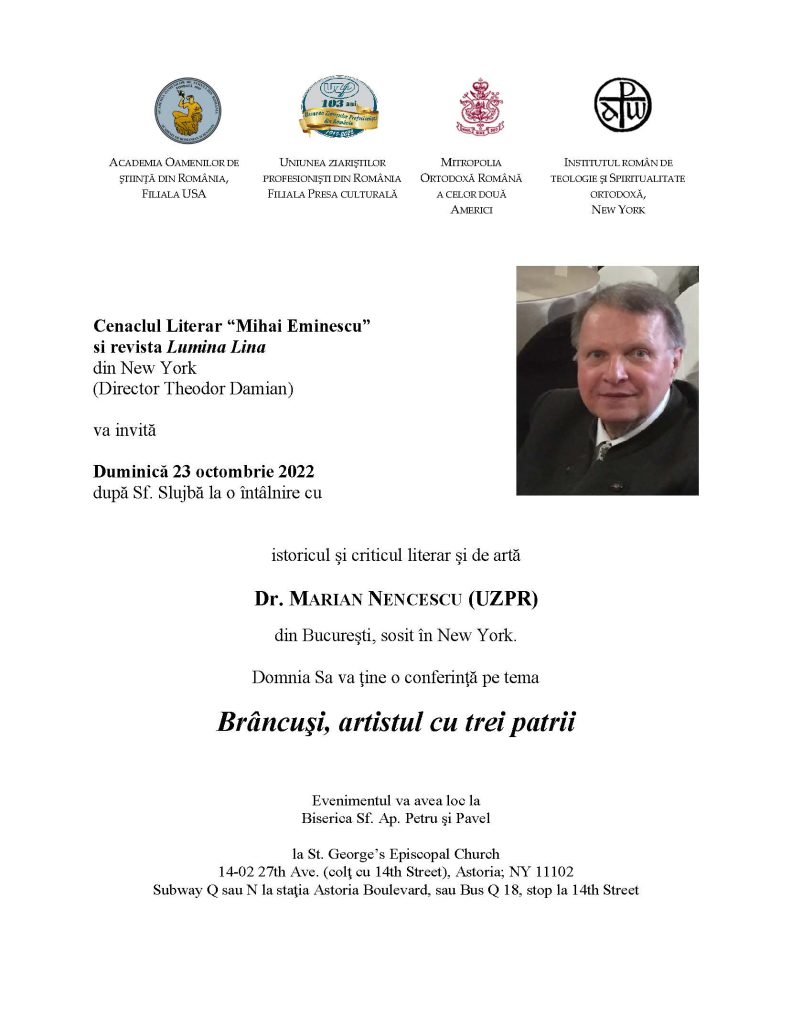
International Conference “Personalised Medicine. Tradition, Innovation and Digitisation”
International Conference “Personalised Medicine. Tradition, Innovation and DigitisationThe “Health and Health Care” conference, organised under the auspices of the Academy of Romanian Scientists, contributes to the improvement of the quality of health, as the health needs of modern society are in a particularly dynamic process of evolution.
The current and continuing need to modernise the approach to health is leading to a complementarity between traditional and modern medicine. Integrative, alternative and complementary medicine is making its way into the desire to live healthy, successful and fulfilled lives.
The conference is held in partnership with:
- Phoenix Foundation;
- All Party Parliamentary Group on Indian Traditional Sciences;
- World Ayurveda Foundation;
- Faculty of Medicine, Titu Maiorescu University;
- Faculty of Pharmacy, Titu Maiorescu University;
- Institute for Studies, Research, Development and Innovation, Titu Maiorescu University;
- European Institute for Multidisciplinary Research;
- Romanian Medical Association;
- Romanian Society of Ethnopharmacology;
- LaserAcuMed SRL;
- Romanian International University Fair.
Conference sections:
- Ayurveda;
- Research and Innovation in Medicine;
- Traditional Medicine;
- Digitalisation in personalised medicine.
From 21-29 October, the world is celebrating Ayurveda System of Medicine Day.
Invite to this international scientific event:
- Amarjeet S Bhamra – lead secretary – APPG Indian TraditionalSciences UK Parliamentary Group;
- Madan Thangavelu – Cambridge University, Director Research Programs, General SecretaryEuropeanAyurvedaAssociation;
- Prof. Dr. Shriniwas Gujjarwar – Medical Superintendent at Baba Kheta Nath Govt. Ayurvedic College and hospital – Patikara, Narnaul, Haryana;
- Prof. Dr. Srikanth Babu Perugu – Head of Department of Internal Medicine BRKR Govt Ayurveda College, Hyderabad, India;
- Prof. Dr. Venkata Narayana Joshi – Director of Ayurveda Academy UK, Europe Ayurveda Academy, London;
- Prof. Dr. Surendra Chaudhary – National Secretary Vishwa Ayurved Parishad, former inspector at the Unani Ayurveda Health Directorate in the state of Uttar Pradesh;
- Prof. Dr. Vikram Chauhan – CEO Planet Ayurveda India;
- Assist. Prof. Dr. Sabharwal Pooja – Ch Brham Prakash Ayurved Charak Sansthan IP University New Delhi;
- Prof. Dr. Ismat Dhala-Nathani – president of Ayurveda Institute of Canada;
- Dr.Prerak Shah – Director AyuLink Hospital, Ahmedabad, India;
- Dr. Gaurang Joshi – Director Atharva Multispecialty Ayurveda Hospital and Cancer Research Center, Rajkot, Gujarat, India;
- Assist. Prof. Dr. Shital M. Bhagiya – State Model Institute of Ayurveda, Gandhinagar, Gujarat, India;
- Dr. Abhishek Lulla – Founder Director AAAF India chapter, Global Council for Ayurveda Research;
- Prof. Dr. Gopi Krishna Maddikera – Founder India Institute of Ayurveda and Rasashastra;
- Prof. Dr. Angela Marculescu – University of Brasov, President of the Romanian Society of Ethnopharmacology;
- Associate Prof. Dr. Laszlo Rosenberg – University of Medicine Targu Mures, Lucian Blaga University of Medicine and Pharmacy, Sibiu, Romania;
- Dr. Iulia Postolachi – Founding member of ISA Su Jok Association, prof. emerit SuJok;
- Drd. Adriana Manolache – General Manager Calitakropolis;
- Dr. Florin Bebeșel – president of Phoenix Foundation as organizing partner, Bucharest, Acupuncture Methodological Center Ayurveda Laser Acu Med.
Organising Committee:
- Dr. Florin Bebeșel
- Dr. Shrikanthbabu Perugu
- Prof. Univ. Dr. Shriniwas Gujjarwar
- Dr Pooja Sabharwal
- Dr. Ismat Dhala-Nathani
- Dr Venkata N Joshi
- Dr. Petrescu Camelia
- Dr. Mihai Sindile
- Dr. Andreea Marinescu
- Stud. Alexandru-Marius Dumitrescu
- Stud. Stefan Luncanu
Book launch “The monastery in a wood, a unique monastic complex in Romania. Historical Monograph” – AOSR Publishing House
The 16th edition of the “Polemos” book fair – history, political science, security and defence, an event through which the Military Publishing House marks the Romanian Army Day every year, will take place on 19-22 October 2022 at the Arts Gallery of the National Military Circle.
On Wednesday 19 October 2022, at 2.30 p.m., the paper Măn a wooden monastery, a unique monastic complex in Romania. Historical monograph, published at Published by the Academy of Romanian Scientists, in exceptional graphic conditions. Author: Prof. Valentin Ciorbea, corresponding member of AOSR. Ion Giurcă and Valentin Ciorbea will speak.
Professor Valentin Ciorbea takes the reader through the troubled history of the settlement, which has repeatedly gone through “ecstasy and agony” over the centuries. This work is the most comprehensive historical monograph on the Dintr-un Lemn Monastery, one of the most important monuments of Romanian medieval art.
The Centre for Research on the Cooperation of the Orthodox Church and the Romanian Army “General Paul Teodorescu”, headed by Mr. Professor Valentin Ciorbea, founding director, who organizes the annual Național Church și Army. Tradițiile conlucției. The materials presented during the symposium on the cooperation between the Orthodox Church and the Romanian Army, the history of the Orthodox Church and other religions in Romania, the history of the Romanian Army, major historical events in Romanian history, reviews and book presentations are published in the periodical “Mission”, which appears under the aegis of the Academy of Romanian Scientists and the Archdiocese of Ramnic.
THE TREATY OF TRIANON – The Fundamental Legal Instrument that Underlies the Great Union
Under the coordination of Ambassador Ion M. Anghel, Honorary Member of the Academy of Romanian Scientists, President of the Association of Career Ambassadors and Diplomats of Romania, the book THE TREATY OF TRIANON – The Fundamental Legal Instrument that Underlies the Great Union has been published by ProUniversitaria.
Along with the other four international treaties signed at the Paris Peace Conference (1918-1920), Treaty of Trianon lies at the heart of the great achievement – Greater Romania; unfortunately, it is also the only treaty that remained in force throughout the entire secular journey (following the Ribbentrop-Molotov Pact of 1939 and the 3 dictates of 1940, Romania was torn apart by its neighbours). Without the Treaty of Trianon, Romania would be less than what it was in 1916 when it entered the war.
However, Treaty of Trianon, became odious appointment for some, disappeared from the vocabulary of the Romanian-Hungarian dialogue, so that in Treaty of Understanding, Cooperation and Good Neighbourliness between Romania and the Republic of Hungary (1996), Treaty of Trianon is simply ignored – which raises questions about it; moreover, Hungary is exercising its jurisdiction in Transylvania, while the process of Hungarianisation is worryingly accelerating.
Being the most important treaty in our history, the Treaty of Trianon remains the foundation of Romania’s existence in its territorial configuration and of its work of unification of the Romanians into a single state. As a result, the vital importance of the Treaty of Trianon for Romania’s destiny is self-evident, and ensuring the durability of this precious document is a fundamental duty for all of us and especially for our decision-makers. As a result, at the basis of the whole set of Romanian-Hungarian relations, the Treaty of Trianon must continue to be the benchmark, a document that must be applied to the letter – secundum lege, in a responsible and uncompromising manner, as any error or hesitation could be fatal for the fate of Romanians.
The publication of this study, also in a foreign language, was unquestionably necessary – it was even necessary, in order to make the point of view of Romanians known to the world – audiatur et alter parswhen for a century Hungary, using all means at its disposal, has sought to remove or block the application of Treaty of Trianon.
Earlier in 2018, on the occasion of the celebration of the Centenary of the Great Union, Ambassador Ion M. Anghel published at Academy of Romanian Scientists Publishing House the work THE TREATIES OF TRIANON AND PARIS OF 1920 THE DOCUMENTS WHICH CONFIRMED THE ESTABLISHMENT OF GREATER ROMANIAwhich you can read in full by following the link attached to the paper.
Prof. Verginia Vedinas – Doctor Honoris Causa, Ovidius University of Constanta
Ovidius University of Constanta conferred the title of “Doctor Honoris Causa” to our colleague, Prof. Univ. Dr. Verginia Vedinaș, for outstanding contributions to legal sciences.
In her lecture in response to the Laudatio, the Professor spoke on“Administrative Law at the Turn of the Millennia, Centuries and Political Regimes“.
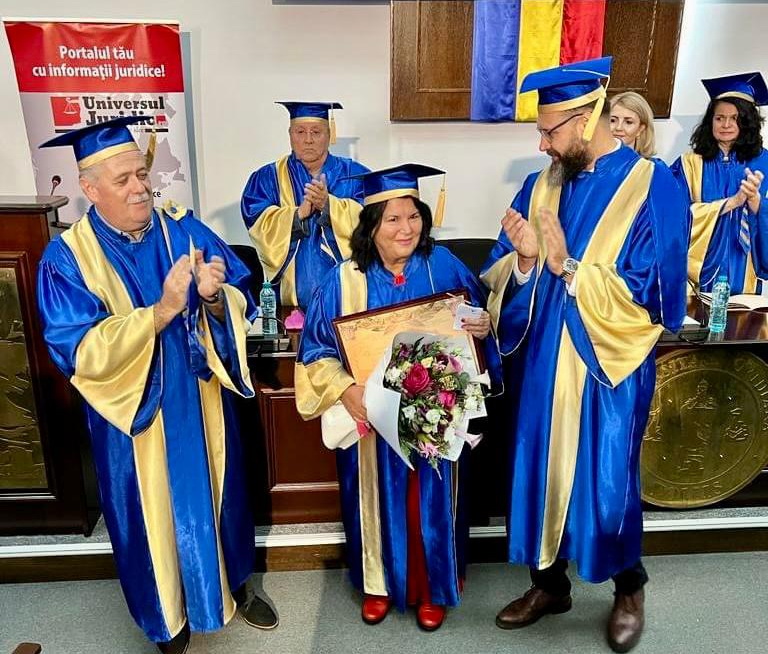
ROMANIAN ADMINISTRATIVE LAW AT THE CROSSROADS OF MILLENNIA, CENTURIES AND POLITICAL REGIMES
– Summary of the dissertation presented on October 13, 2022, on the occasion of the conferral of the title of “Doctor Honoris Causa” by the “Ovidius” University of Constanta –
I. PROLEGOMENE. BEGINNINGS
1. Administrative law began to develop in the second half of the 19th century. The reforms of the ruler Alexandru Ioan Cuza, whom we have likened in our previous writings to a Napoleon of the Romanians, undoubtedly contributed to this, of which we mention the two Laws no. 396 of 31 March 1864 for the establishment of county councils and, respectively, the Communal Law no. 394/31 March 1864 which established the real modern administration at local level as well as the Law of 1864 establishing the Council of State, after the French model, with the same triple role, as a jurisdictional body, as advisor to the government and head of state and as disciplinary authority over state officials.
II. Administrative law in the interwar period
The interwar period was dominated by the adoption of the 1923 Constitution, considered by most authors to be the most democratic Constitution of Romania. It raised, through Article 107 to the level of the Fundamental Law, the institution of administrative litigation. On the basis of the 1923 Constitution and the laws adopted on its basis, and we refer in particular to the Law on the Status of Civil Servants of 1923 and the Law on Administrative Disputes of 23 December 1925, a rich doctrine and jurisprudence developed.
A shining moment in this period was the establishment “without any official support or subsidy from the state” by Paul Negulescu on 30 June 1925 of the Institute of Administrative Sciences of Romania, of which he was the head until the end of his life in 1946, although he only formally served as secretary general. The Institute was recognized as an establishment of public utility by an express law.
A special place in the work of the Institute was given to the publication of the Review of Public Law, the first issue of which appeared in 1926, and in whose pages were published sacred masters of French and European public law.
III. Administrative law in the post-war period
In the post-war period, public law faced a decline in the significance of its institutions, the great institutions of public law were formally abolished and replaced by what we can call “surrogate” versions considered specific to this regime.
We point out that, despite these unfavourable realities to say the least, the great professors of public law have defended public law institutions such as administrative litigation, the administrative contract or the civil servant.
IV. Contemporary Administrative Law
1. A new Constitution, revised in 2003.
The end of 1989, when what the Constitution states in its first article, para. (3) to represent the ideals of the December 1989 Revolution, put an end to one regime and the cornerstone for another. And because any new society needs a new head law, the priority of 1990-1991 was the adoption of a new Constitution, which underwent one revision in 2003 and several failed attempts since then. The revision was prompted by the need to enshrine in the Constitution the necessary rules to achieve the process of integration into the European Union, in which our country was fully involved.
2. Administrative litigation
The first institution to which we turn is administrative litigation, to which the original form of the Constitution devoted three articles, which had been preceded by the former Law no. 29/1990, a pre-constitutional law that imposed a process of constitutionalisation of administrative litigation, a dimension of the constitutionalisation of law as a whole, subsequently replaced by Law no. 554/2004.
3. Public and private property of the State and of the territorial administrative units.
The 1991 Constitution enshrines property in its two forms, public and private, in a way that leads to the conclusion that private property is the rule and public property the exception.
The current regulation is represented by the Administrative Code which devotes Part V of its specific rules on public and private property of the state and administrative-territorial units as well as the Civil Code approved by Law No 287/2009, Title VI Articles 858-875 as well as Article 854.
4. Public service
The regulation given by the Public Services Administrative Code was necessary because in our country we can say that the sequence of regulatory priorities has been reversed. First sectoral regulations were adopted and then a general one. Instead of concluding at this institution, we will recount one of our experiences in public life.
5. Administrative liability.
The Administrative Code, through its Part VII devoted to administrative liability, recognizes for the first time in the history of Romanian public law institutions that, until then, were exclusively evoked in doctrine and jurisprudence.
The Administrative Code identifies three forms of administrative liability: disciplinary, contraventional and pecuniary liability.
In our opinion, an administration is truly modern, European when the number of officials or dignitaries who are held accountable is as low as possible, when it does not “run” with criminal files. The reality in Romania in recent years has been the opposite of our vision, which has dangerously eroded trust in the authorities, brought it to a lamentable level, with the most negative consequences for the evolution of the rule of law and democracy in our country.
We wanted to create an essential epic of administrative law. Such a goal is an arduous task, because it is much more difficult to write a little about what you could cover in hundreds, if not thousands of pages.
The “roots” of administrative law are to be found in those “democratic traditions” referred to in Article 1(1). (3) of the Romanian Constitution. We must build on them to preserve our identity. It is in this spirit that we have built our presentation, which we also want to be a manifesto of conscience of the professor who is an enthusiast of public law, to which he has dedicated his entire professional and human destiny and who wishes to transmit, in addition to knowledge, thoughts, feelings, experiences. People need education at all ages and it cannot be limited to information. We need to form beliefs and attitudes. And public law, as “the law of the citizen”, has such a mission, of which we are aware and strive to transmit to those we train, but also to other categories of recipients of our academic and public work.
Prof. Dr. VERGINIA VEDINAȘ
Faculty of Law, University of Bucharest
Corresponding member of AOSR
President of the Institute of Administrative Sciences “Paul Negulescu”



